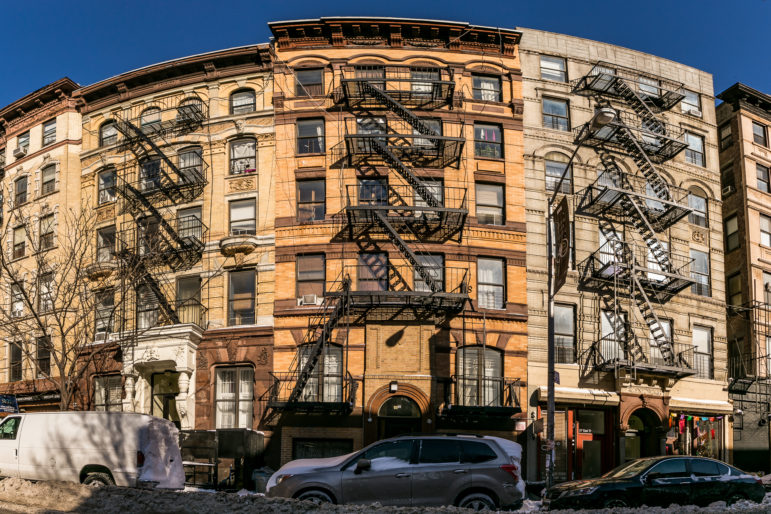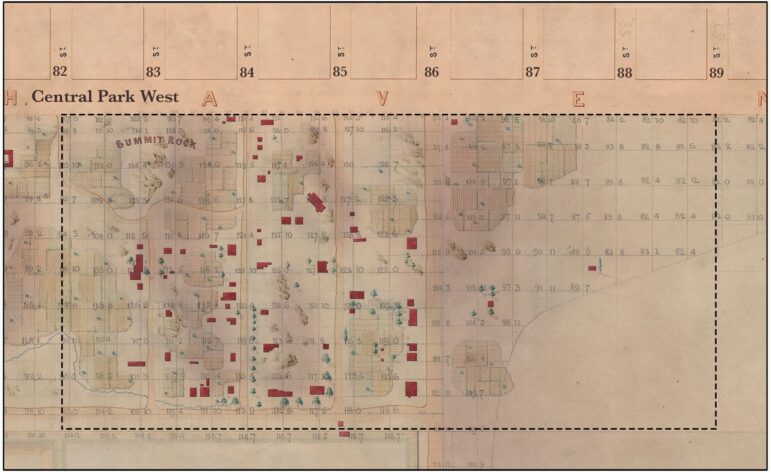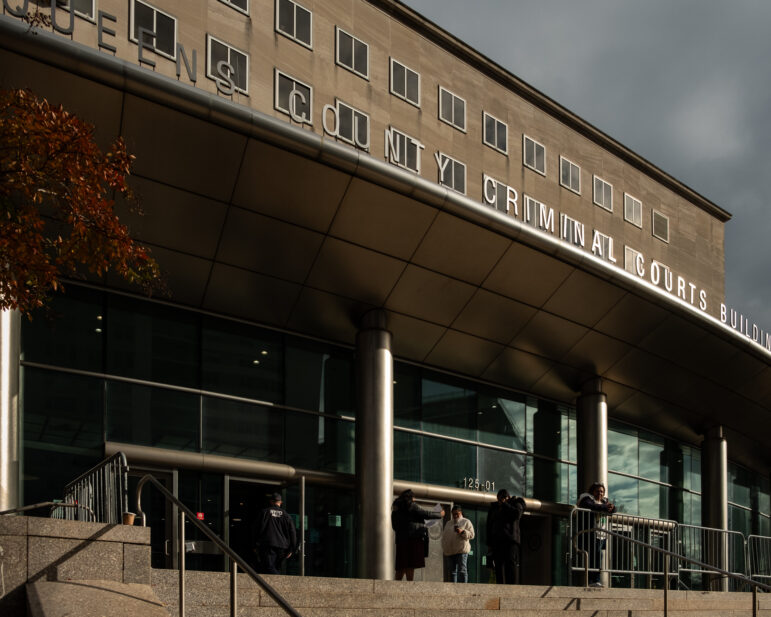The decline comes as demand for these programs, which include adult literacy and English-language classes, has spiked significantly in recent years.

Adi Talwar
Participants in an English for Speakers of Other Languages (ESOL) class at St. Nicks Alliance in Brooklyn on Aug. 5, 2024.Lea la versión en español aquí.
As of December, the number of participants taking part in city-funded adult literacy classes, including immigrant New Yorkers learning English, dropped by about half (48.3 percent) this fiscal year compared to last, City Limits has learned.
The decline comes at a time of high demand for such services—after more than 231,000 migrants and asylum seekers arrived in the city over the past three years, tens of thousands of whom remain in the shelter system—and after the NYC Department of Youth & Community Development (DYCD) implemented a new formula for awarding funding to program providers.
There were approximately 5,071 participants in these programs between July and December of 2024 (making up the first six months of current fiscal year 2025), down from 9,811 during the same period the year before, according to DYCD data.
DYCD said much of the decrease related to the transition to its new contract cycle, including the finalization of grants and startup of new programs. City Limits was first to report last summer on those changes, which forced several longtime adult education providers to postpone or temporarily cancel classes.
At the start of the fiscal year in July, DYCD developed new Requests for Proposals (RFPs) for vendors to bid on, and selected vendors within specific census-based geographic communities called “Neighborhood Tabulation Areas,” or NTAs, targeting those with high poverty rates and low English proficiency and educational attainment.
But DYCD said it didn’t receive proposals for several NTAs, requiring a search for other providers. Critics of the changes the agency made to its contracting process had previously warned of such an outcome: Last year, the New York City Coalition for Adult Literacy found that many targeted NTAs had no existing DYCD-funded providers, while over 70 percent of existing programs weren’t located in a targeted NTA.
In addition, two bidders withdrew from the process, according to DYCD. The agency has selected new providers to fill these positions, which cover programs for 125 people in Crown Heights and for another 149 participants in Bedford-Stuyvesant. As of Feb. 19, those contracts were awaiting approval from the Mayor’s Office of Contract Services.
“DYCD remains focused on providing critical literacy programs to communities with the greatest need,” said Mark Zustovich, a DYCD spokesperson. “Additionally, New York City’s discretionary funding, allocated by the City Council, supports not-for-profit organizations addressing local priorities. These funds enhance the services of city agencies, and are used to directly meet the evolving needs of communities across the city.”
Over the summer, contract assignments took more than two months to complete, and several adult literacy providers were forced to temporarily cancel classes because in the wake of the new rules, as City Limits reported in August.
That lag in allocations, in turn, delayed the distribution of the City Council’s $10 million in discretionary funding for adult education programs, which offer a range of classes to New Yorkers over the age of 16, including literacy, English for Speakers of Other Languages (ESOL) and math.
Over the last few years, the City Council has increased overall funding for adult literacy programs. Last year, lawmakers provided discretionary funds to replenish providers that lost funding under DYCD’s new RFP process, so that services could reach a similar-sized population as in previous years.
According to DYCD, the target for this fiscal year is to serve 14,312 participants in its adult eduction programs. That’s lower than the number of people who took part in city-funded classes during the previous two years: providers served 18,191 people in fiscal year 2024 and 16,520 people in fiscal year 2023, city data shows.
DYCD said it will continue to coordinate with contracted providers, who it says are making progress toward their enrollment goals.
To reach the reporter behind this story, contact Daniel@citylimits.org. To reach the editor, contact Jeanmarie@citylimits.org
Want to republish this story? Find City Limits’ reprint policy here.






